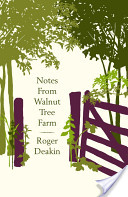
I made a mental note a while ago only to review books that I really loved: books that were special, that I’d go back to, that I’d wholeheartedly recommend to close friends. Life is too short to review books that were merely so-so, acceptable, somewhat informative, useful as background. I read (parts of) many of those, “researching” subjects and places, and for the most part once I’ve done what I wanted the book goes on a shelf and stays there.
Books that stick in the mind, that quietly speak to me long after I last dipped into them, are a small proportion. It is only too easy to buy something that looks inviting, only to find after a chapter or two that it’s a bit overblown, poorly argued, limply presented. Books that are specially trumpeted are particularly at risk here. Amazon reviews tend, on average and given sufficient quantity, to be truthful: of course authors ask friends to review their books (we all do it) so you need a good sample to get a genuine impression from readers, and, caveat emptor, you should read between the lines to see if the reviewer is real and appreciating the book in the same way as you.
I mention all this because I took a look at my most recent shelf of books with an eye to writing a review. The internal dialogue went something like this. “Um. No. Gulp, not that. Reviewed that already. no. No. no. Ah.. no, did that back in 2007. No, no, no, no, no. Erm, not much here. Hold on, did I ever do Notes from Walnut Tree Farm? Time I did.”
Roger Deakin wrote two marvellous books, Wildwood and Waterlog. It isn’t accidental that they both have something to do with wood in their names: Deakin was very close to wood, and had carpenters and men named Wood in his family. He then died suddenly, leaving 45 notebooks full of daily observations of all kinds, written in the last six years of his life. Alison Hastie and Terence Blacker took on the task of selecting extracts and arranging them into a composite year.
Walnut Tree Farm was Deakin’s house in the Suffolk countryside. It was timber-framed, in other words made of local wood. He bought it in ruinous condition, and rebuilt it himself: a mediaeval house, with a moat that he liked to swim in. Every corner of his life was of a piece, intensely personal, fully and passionately experienced. His writing is cut from the same sturdy oak.
Fire: nothing gives me more comfort or more anxiety than fire.
Look up Cobbett on the laying of fires — talk about bread ovens and faggotts of furze for bread-making.
The fireplace has been subsumed by the TV, pushed out of the nest as by a cuckoo. People now contemplate the TV, not the fire.
What is it about Deakin’s notes that is so compelling? Reading him on fire just now, I can hear the crackle of logs in the grate, smell the woodsmoke, feel the pleasure as the flames flicker red and yellow. I would call him a sensuous writer, at the risk of being misunderstood: he does not write purple prose. He feels life directly and communicates his sensory experience in clear, straightforward words, the opposite of rambling, yet he conveys the impression of relaxed thought, of coming upon interesting things and reflecting on their possibilities. Reading him feels very private: it’s like being in his mind, a privileged position.
Deakin takes us — me, you —to Suffolk; to walk in the woods, to reflect on a dead, trapped fox, to watch the carp in his front pond, to listen to a willow warbler which “sings in the spinney by the old goat sheds”, to join him scything his lawn by hand, cooking on a “little cast-iron stove” from Morocco, having “singing lessons with Mrs Gillard, who put her hands on my stomach as I sang”. It’s extraordinarily varied, authentic in every corner, always warm, always intelligent.
There is nothing else like Notes from Walnut Tree Farm: fresh, insightful, funny, stimulating, informative, peaceful, full of life and nature. Please read it.
Buy it from Amazon.com (commission paid)
Buy it from Amazon.co.uk (commission paid)
